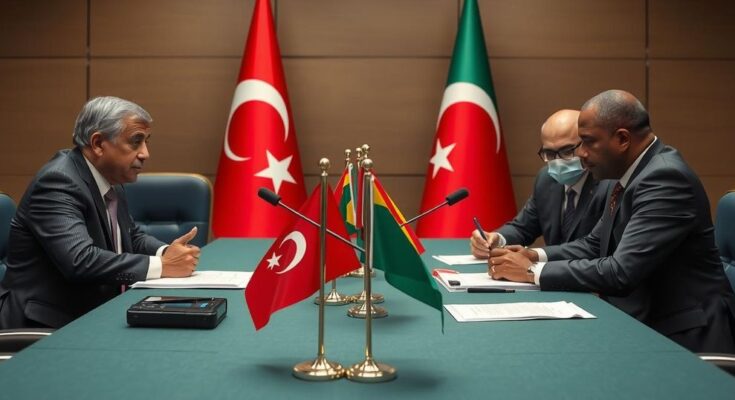Ethiopia and Somalia have reached an agreement to resolve a nearly one-year dispute following Turkish mediation by President Erdogan. This tension arose after Ethiopia made a deal with Somaliland, impacting relations between the two neighbors.
Ethiopia and Somalia have recently finalized an agreement aimed at resolving a longstanding dispute that has persisted for nearly a year. The negotiations leading to this development were facilitated by Turkish President Recep Tayyip Erdogan. This contentious relationship escalated after Ethiopia entered into an accord with Somaliland, which provided the landlocked nation with access to maritime resources. Political commentator Martin Oloo, along with DW’s editor Isaac Mugabi, discussed the implications of this agreement on the relations between the two nations.
The Somalia-Ethiopia tensions have their roots in territorial claims and resource management, particularly following Ethiopia’s agreement with Somaliland. Somaliland, a self-declared independent republic, has been a critical player in the geopolitics of the Horn of Africa. The Turkish mediation reflects Ankara’s increasing involvement and influence in African affairs, particularly in fostering peace and stability in the region.
The recent agreement between Ethiopia and Somalia represents a significant step towards mitigating regional tensions and illustrates the potential for diplomatic resolutions through international mediation. As both countries work towards establishing a cooperative relationship, the broader implications for stability in the Horn of Africa remain to be seen. Continued dialogue and collaboration will be essential in ensuring lasting peace between these neighboring states.
Original Source: www.dw.com




